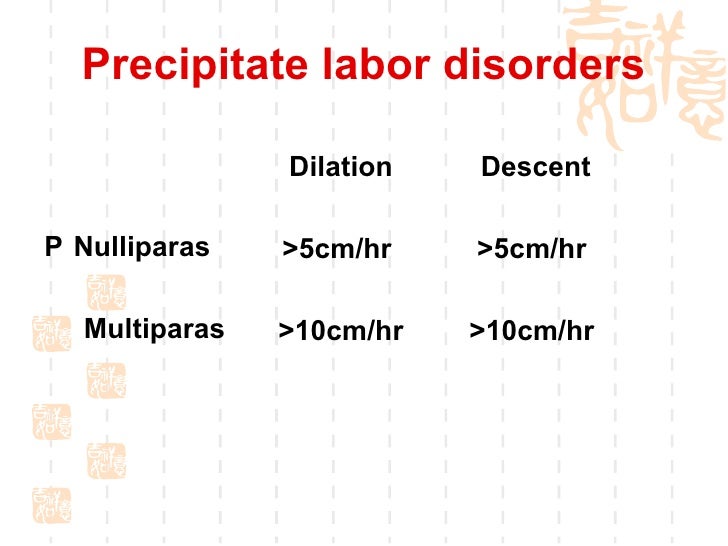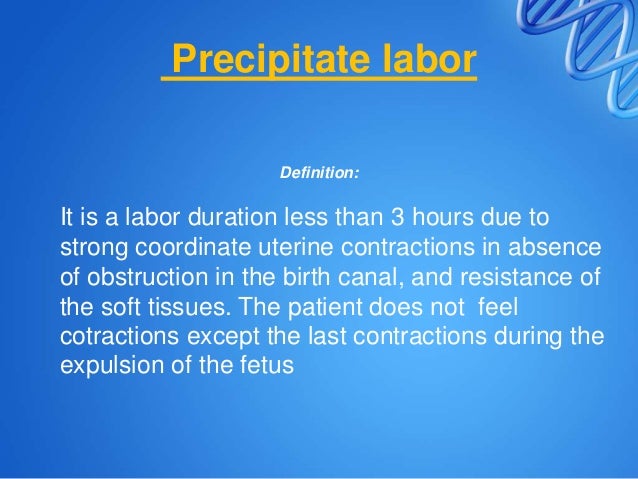

However, research into the causes of precipitate labour hasn’t shown conclusively that this is the case (Larmer 2010). So, if you have a mum or a sister who has experienced a fast labour, you may worry that it’s going to be the same for you. It’s sometimes thought to run in families. What causes precipitate labour?No one knows for sure what makes some women experience a very fast labour, while others labour for hours or even days. Normally you would expect contractions to build up gradually over the course of several hours (McBride 2015). Other women find that, although their labour is short, their contractions are very frequent and powerful right from the start. This is when you start to feel the urge to push or even feel your baby’s head descending (Rimmer 2014). If this happens to you, the first clue that your baby is on his way may only come as you enter your second stage of labour. It’s thought that their womb (uterus) contracts so painlessly that they don’t feel the contractions in the first stage of labour at all. Some women who have fast labours aren’t aware that they’re in labour until the very last minute. About two in 100 women whose labours have started naturally will have a fast, or precipitate, labour (NCCWCH 2008). Your labour will be described as precipitate if your baby is born within three hours of your contractions starting (NCCWCH 2008, Sheiner et al 2004). What is precipitate labour?Precipitate labour is the medical term for fast labour. Will a fast labour affect me emotionally?.


Can I be induced to prevent another unexpected fast labour?.How can I prepare for another fast labour?.I had a previous precipitate labour, will it happen again?.Can precipitate labour cause complications during or after the birth?.


 0 kommentar(er)
0 kommentar(er)
